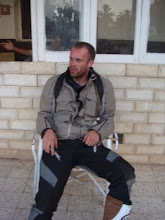This is almost certainly a mistake. Advisors to Stephane Dion, presumably the new ones which he has brought in, are counselling him to take on the Tories case by case after the Throne Speech, rather than opposing the speech and triggering an election.
By being outfoxed by Duceppe and Layton, Dion's strategic judgement could be called into question. That is, by allowing them to set their terms of negotiation, he was put against the wall and forced to either accept the government's agenda or call an election. Instead, he appears ready to take a third route, which is to oppose the government on legislation as it comes. This calls his strategic judgement - or that of his advisors - into even greater question. Here is why: this scenario only plays out in two ways. First, Harper gets all the legislation he wants. Second, Dion forces Harper's hand on some obscure piece of legislation and suddenly we're having an election over amendments to the wheat board, or minimum sentences for drug trafficking, or some other small issue. Dion will be seen to have forced the election, and Harper will be able to ask him why he would call Canadians back to the polls over such a small issue.
There is an alternative to this. It is to roll the dice. Oppose the speech from the throne in vigorous terms on the grounds that it is entirely contrary to the Liberal program. Then put it to the people. This is Dion's best course of action. Here's why. First, the opposition within his own party is not going to die down. If they get a clear signal that there will be no election for a year or 18 months they will continue to undermine him. So, the worst case scenario for Dion is that he is eventually forced to step down after a long, Fabian battle. Second, the best he can be in a year from now if he doesn't trigger an election is Leader of the Opposition with 90-some seats. However, if Dion triggers an election, the downside doesn't change. He could still get thrown overboard. But the upside is potentially larger: he could become prime minister if several things fall into place and Harper makes a few mistakes. It seems highly unlikely at this point, but it is not zero-probability. So the downside is the same, but the upside is higher. The only conditions under which waiting make sense are if Dion can force an election under more favourable terms. This seems highly unlikely. Instead, he will have to force it over some small issue, or wait until Harper has pushed through one or two more budgets. The stars are hardly aligned for Mr Dion - and it makes a lot of us honestly sad, because we've had high hopes - but the time to go is now.
UPDATE: It occurs to me that this whole case with Dion after the Throne Speech is a nice illustration of the struggle between leaders and local members. From Dion's perspective, he cares principally about his leadership and advancing his party (with him at the helm). He is as capable of backward induction as anyone else (that is, working backwards from likely outcomes to determine actions), and he certainly must have sensed that now was the time to go. But many media reports suggested the view was not shared by his MPs. This is fair enough: they do not want to lose their jobs either, and probably a third to half of them view themselves as being in marginal ridings. Dion likely doesn't care which MPs win, so long as he has the same number more or less after the election. But those losing MPs do, as their interests are put before those of the party. It's a thought for another post, perhaps.
Saturday, October 06, 2007
Subscribe to:
Post Comments (Atom)

2 comments:
I more or less agree with this. But part of your argument hinges on Harper making "small issues" votes of confidence. Dion could argue that such a strategy from the Conservatives is silly and meant to give them (the Tories) ammunition in blaming Dion for bringing down the government. But I guess, given the option, I agree that Dion should come out guns blazing after the speech from the throne.
Also, if it's "not a non-zero probability" it is a zero-probability.
You are right. Fixed.
Post a Comment